Best Egg Laying Chickens -White Eggs, Brown Eggs, And More!
(Display photo by Kelly NeilUnsplash)
So you’ve made your coop…you’ve added the bedding…and now the fun part – choosing your chickens! But if you’re out for maximum egg production, some breeds will perform better than others (like Novagens). I’ve been raising chickens for over 15 years and have experimented with a few breeds and found that some are better egg layers than others.
We have a big family and eggs are a pretty major staple at our house so this data was important to us when choosing our hens. We generally buy new chickens every year, or at least every other year as they tend to lay less as they get older. And let’s be honest – it’s fun to get chicks once in awhile right??
So in this article, we’ll take a look at a few top chicken breeds that lay brown eggs, white eggs, blue eggs, green eggs, or blue/green speckled eggs – There are a lot of colors to choose from which makes this pretty cool!
If you’re still looking for help setting up your coop, I’ve posted a guide here! It’ll help you get your coop set up to handle all those chickens and, of course, all the eggs that come with them!
Factors To Consider When Choosing Your Hens
To be honest, when choosing my flock of chickens, I don’t always look specifically at how many eggs the breed will lay but their “personality” as well. For instance, the Buff Orpington is a larger chicken breed that lays around 180 – 200 eggs per year, which is not bad but there are breeds that lay more, such as the Leghorn. Each year I get a few of each of these two breeds – the leghorns because they lay up to 280 eggs/year (awesome), and the “Buffs” because they are just so sweet.
They tend to be friendly and the kids can usually pet them. They can be a bit broody sometimes which, if you aren’t aware, means they can get into periods when they sit in the nest box on top of the eggs waiting for them to hatch… every day, all day, for weeks. (I hate to break it to them but, because we don’t have a rooster, that ain’t gonna happen:)
But the flip side is that they are great mama chickens so it’s a great breed if you want to get a rooster and raise a few chickens.

Other Factors:
Size of Chicken – Some breeds, either brown or white egg layers, are larger than others which can add to your overall feed costs. If this doesn’t bother you, then it’s no big deal. We have a mix of larger and medium sized breeds for variety and for different color eggs.
Size of Eggs – Just like some chickens are larger than others, it’s also true that some chickens lay larger eggs than others.
Do Bigger Chickens Lay Bigger Eggs? According to the Manitoba government’s agricultural site, this is true! But there are other factors involved in creating larger eggs such as increased protein in the feed, adding more light in the coop for longer periods, skeletal size of the chickens, and increasing the amount of food they consume. You can read the article here.
How Many Years Can Hens Lay Eggs? – Generally speaking, you get the best egg production from your hens in the first 2 years. I will often sell my flock after that at a reduced price per hen for that very reason. Having said that, we do get attached to our flock too so the ones that pull at our heart strings sometimes stay for a long time:)
When we do this, I don’t know just how fewer eggs they lay since they are mixed in with the younger hens. I have friends that swear their birds slow down egg production for a short while after a couple years, but then pick up again…I’m not convinced of this in my own experience, but it’s worth noting!
So in light of all this interesting info, lets take a look at some of the best egg layers! This list includes many chickens I’ve tried in my own flock, as well as information I gathered from online forums and from talking to farm store staff knowledgeable in the subject. In compiling the data, we looked at egg color, egg size, number of eggs/year, and personality of the chicken.
Best Brown Egg Laying Chickens

Golden Comet Chickens
- Egg Color: Brown
- Egg Size: Large
- Number Of Eggs/Year: +/- 275
- Personality: I like these for egg production a lot. They are good for cold or hot climates. My experience is they are fairly docile. Easy keepers!

Rhode Island Reds
- Egg Color: Light brown
- Egg Size: medium (alghthough I’ve seen some pretty big eggs from this breed on occasion)
- Number Of Eggs/Year: +/- 250
- Personality: I like these for egg production, but they are a bit standoffish with people (in my opinion). A tough breed though, and great layers. Not generally broody.
Black Australorps
- Egg Color: Light brown
- Egg Size: medium
- Number Of Eggs/Year: +/- 250
- Personality: They seem a bit shy, docile and easy to have around. Not flighty. Ok for cooler climates, not especially great in heat. Can be broody.

Plymouth Rock
- Egg Color: Brown
- Egg Size: Medium – Large
- Number Of Eggs/Year: +/- 200
- Personality: Good foragers and reasonably friendly. My kids were able to tame them sometimes:) Hardy birds. Can be broody. Do well in cold and heat.

New Hampshire
- Egg Color: Light brown
- Egg Size: Large
- Number Of Eggs/Year: +/- 200
- Personality: A bit skittish at times, but great layers of big eggs. Great for colder climates, not so great in heat. Hardy birds, can be broody.

Wyandotte
- Egg Color: Brown
- Egg Size: Large
- Number Of Eggs/Year: +/- 225
- Personality: Easy going, can be broody, excellent layers, tolerate cold well.

Delaware
- Egg Color: Light brown
- Egg Size: Large
- Number Of Eggs/Year: +/- 225
- Personality: Docile, can be broody, my kids have tamed this breed too:) Great for colder climates

Marans
- Egg Color: Dark Brown and sometimes speckled
- Egg Size: Large
- Number Of Eggs/Year: +/- 200
- Personality: I’ve had docile Marans but reviews are mixed. Hardy in colder climates. Beautiful dark brown egg color. Can be broody.

Buff Orpingtons
- Egg Color: Brown
- Egg Size: Large
- Number Of Eggs/Year: +/- 180.
- Personality: A family favorite – docile, friendly. Can be broody. Great for colder climates but not as much in heat. Ours have done well even in our hot summers with plenty of water.
See This Chicken Laying An Egg!
Best White Egg laying Chickens

Leghorns
- Egg Color: White
- Egg Size: Large (sometimes X Large)
- Number Of Eggs/Year: +/- 280
- Personality: Seem to be a bit flight – we always keep their wings clipped. Great foragers, are independent at times. My personal favorite for egg production.

California White
- Egg Color: White
- Egg Size: Medium-Large
- Number Of Eggs/Year: +/- 280
- Personality: Similar to White Leghorns. These look similar but have black flecks speckled in the white. Active birds, a bit more mellow than Leghorns (at least in my opinion). Hardy, good foragers in the yard.

Brown Leghorns
- Egg Color: White
- Egg Size: Large
- Number Of Eggs/Year: +/- 250 (slightly less than white leghorns)
- Personality: similar to White Leghorns. Not broody.

Hamburg
- Egg Color: White
- Egg Size: Small
- Number Of Eggs/Year:+/- 225
- Personality: Like to be active, good foragers, more flighty. Not often broody.

Buttercup
- Egg Color: White
- Egg Size: Small
- Number Of Eggs/Year: +/- 175
- Personality: Better in warm climates than cold. High energy. Not generally broody.

Andalusian
- Egg Color: White
- Egg Size: Large
- Number Of Eggs/Year:+/- 200
- Personality: Lots of energy. Not great in cold climates but tolerates heat. Can be flighty. Not generally broody.
Best Green And Blue Egg Laying Chickens

Aracauna
- Egg Color: Green
- Egg Size: Large
- Number Of Eggs/Year:+/- 225
- Personality: Docile. Tolerant of cold better than heat. Available through breeders now, not hatcheries. Pictured is white but they come in many other colors too.
Americauna
- Egg Color: Blue
- Egg Size: Large
- Number Of Eggs/Year:+/- 225
- Personality: Good in hot and cold conditions, active but friendly. Relatively new breed and harder to find – available only through breeders, not hatcheries. They come in many different colors.

Easter Eggers
- Egg Color: Blue, Green, Olive, Speckled
- Egg Size: Large
- Number Of Eggs/Year: +/- 225
- Personality: I’ve owned these before thinking they were either Americaunas or Aracaunas but Easter Eggers are a mix fo the two and, luckily, sold by hatcheries. They can often be found at your farm store! Docile, fun breed, my kids love them. Tolerate both cold and heat well. They come in different colors sometimes and their eggs can either be olive, blue, blue/green, speckled…and you won’t know which colors until they start laying!
Final Thoughts
The list I have here merely scratches the surface, but are some of the more common breeds raised. They can be found in a lot of farm stores, or ordered online! I have ordered incubated eggs online before and had great luck. It also allowed me to try out other breeds of chickens I’ve never had before. The down side is that you can pay a lot extra for postage.
I hope you found a few egg laying breeds that piqued your interest here! Having an assortment of brown, white, and green/blue eggs every day makes raising chickens a blast. Good luck in your chicken raising adventures! Please leave a comment if there’s a breed that you love listed here or not.

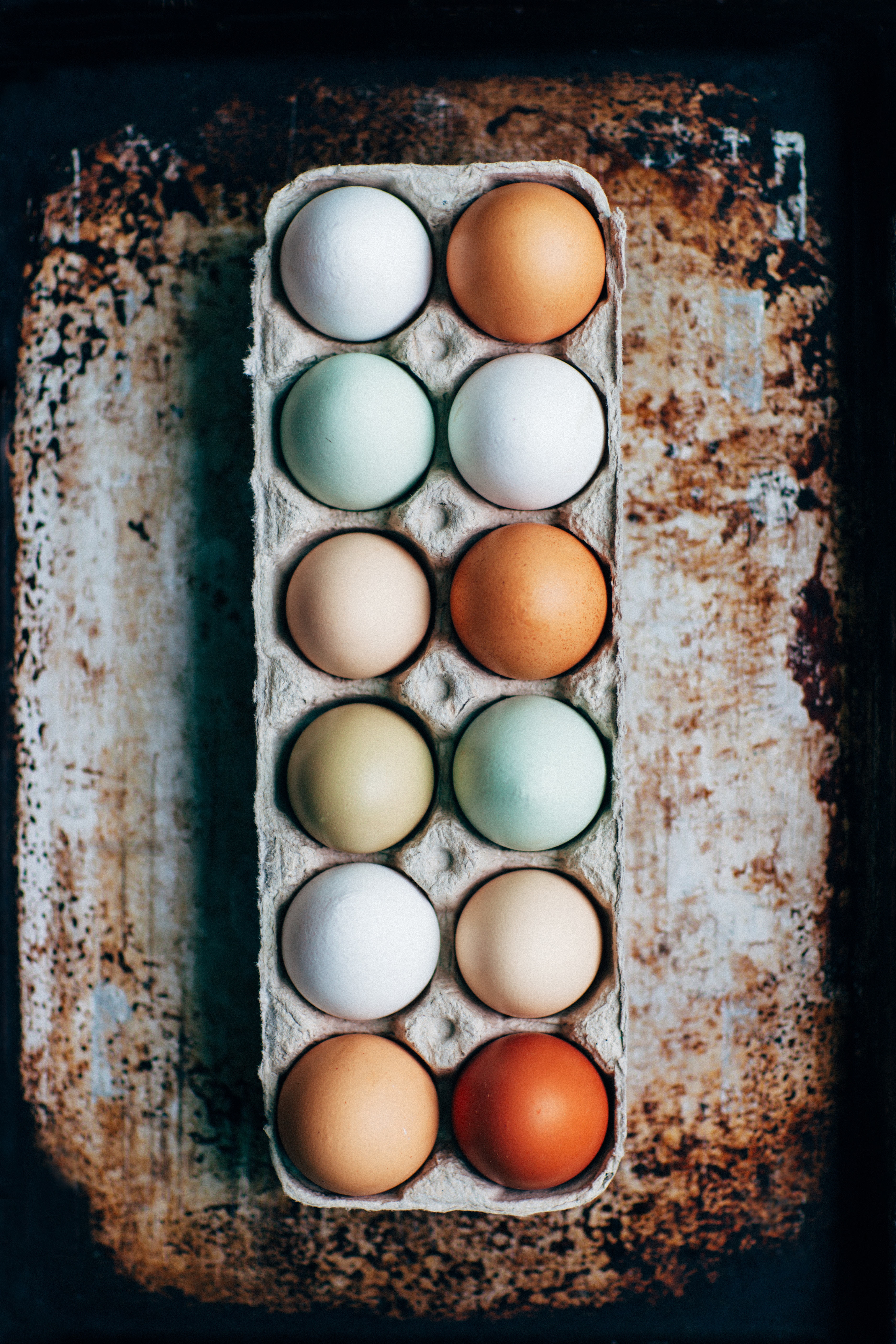


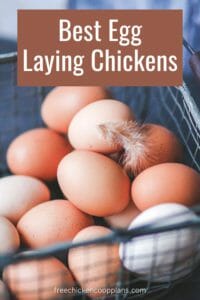
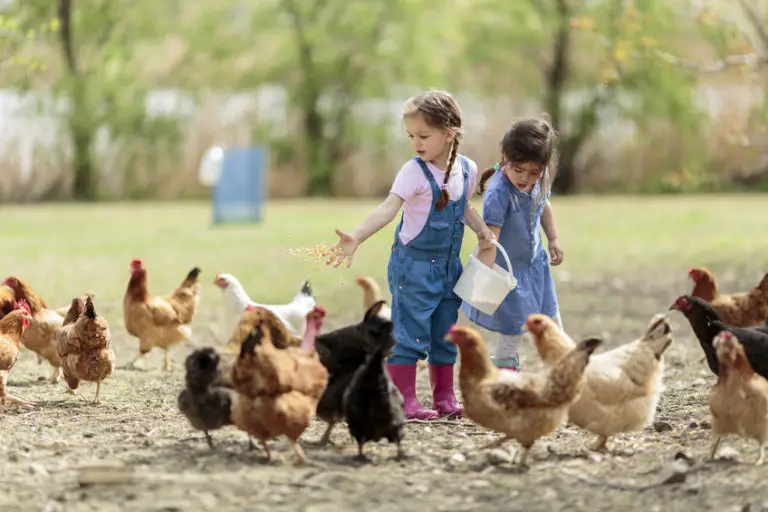
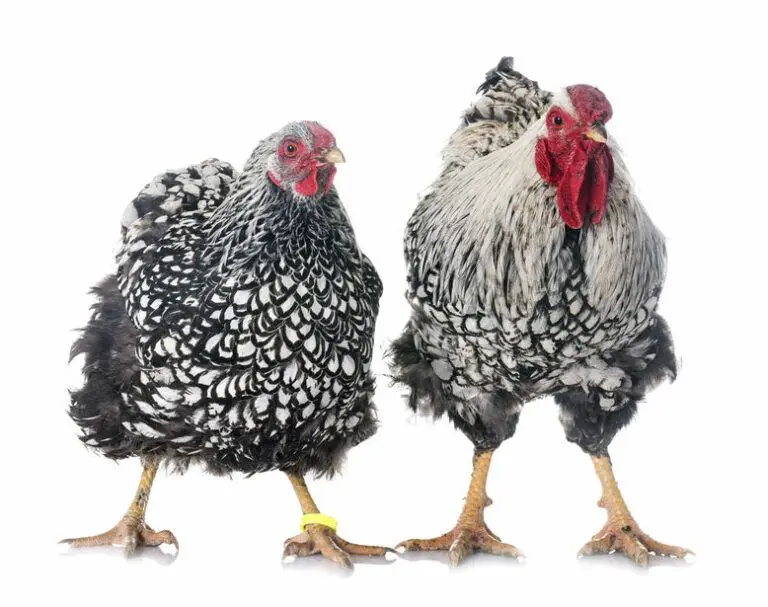
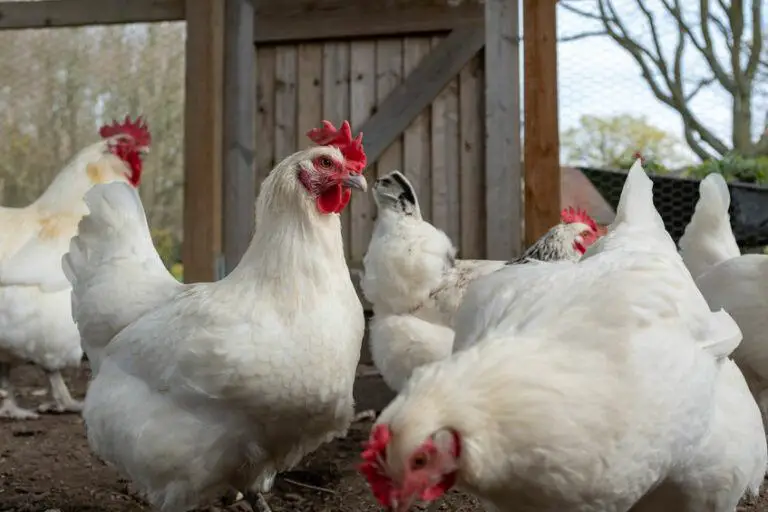
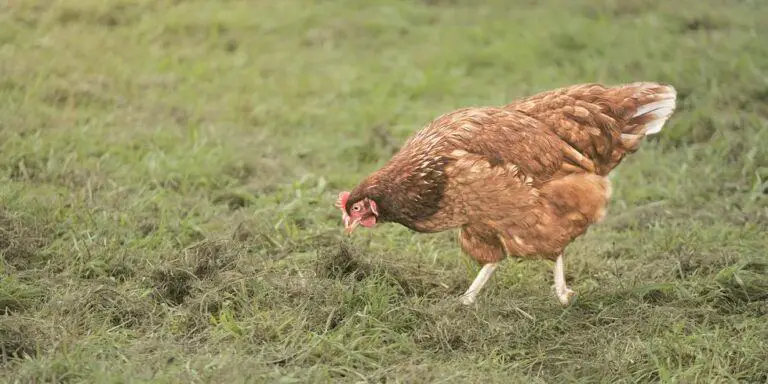
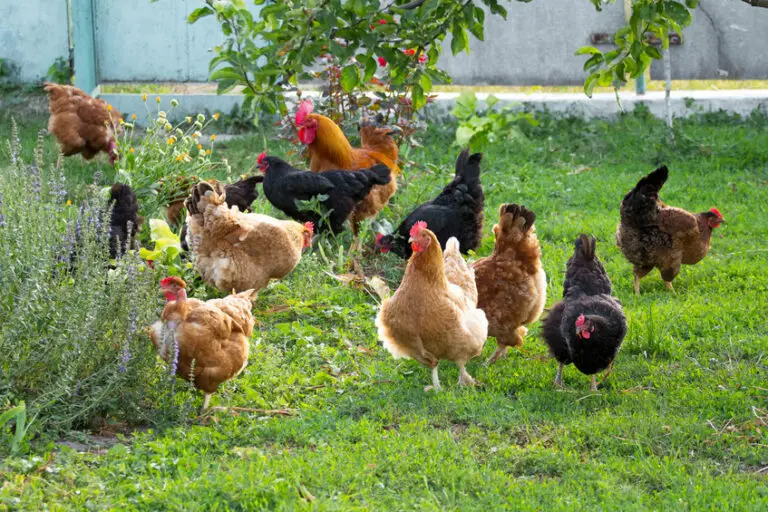
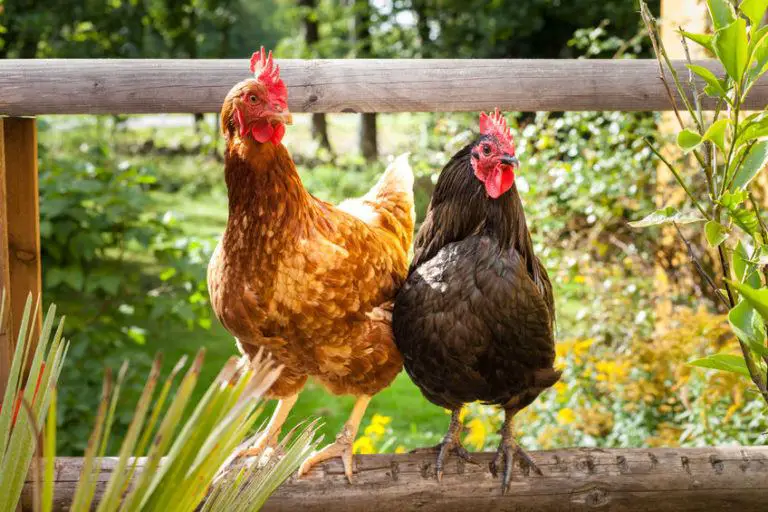
What a great resource your website is. My husband and I had just decided to start raising chickens on our 40 acres in Colorado . Your site is invaluable, I knew I wanted to have eggs but I really liked how you listed all the different types of chickens, how many eggs they lay AND their personalities. I hadn’t realized there were so many. I also liked the info about automatic doors as we have lots of predators here and that is one of the reasons that we have not raised chickens already. I did not know these even existed, it sounds so much better and safer so we will definitely look into those. It also gets very cold here do you have any information about heat lamps or how to keep your chickens warm during winter?
Thanks for your comment – wow 40 acres! You’ve got your hands full but what a great acreage for all kinds
of farm animals. I’ll have to research heat lamp ideas but you could probably use a standard heat lamp like the ones for chicks but connect it to a timer to only come on for certain periods like at night. Chickens are hardy though so you may not need a heat source as long as the coop is dry and not too drafty. Best of luck to you!
WOW, Tom, This site is so valuable to chicken lovers. I happen to be a chicken lover. But I haven’t owned chicks for quite a few years. You know your stuff. There are more types of chickens than I had ever imagined. I know it sounds crazy, but I am thinking about having just 2 or 3 in my backyard. It is legal in my town. I enjoy picking up eggs each day and watching the chicks.
What would you recommend as the best chicken for smaller more enclosed areas?
Thanks for your comment Laura! Really any of the breeds in the article would do well in a backyard. If you’re wanting high egg production, I’d probably go for Leghorns. But the Buff Orpingtons, although not as prolific an egg layer as the leghorns, are a nice docile chicken to have around and can be almost like pets:) The Easter Eggers are fun too for their colorful eggs – so the mix of those three would give you a white, brown, and green egg respectively:) Good luck to you!!
Hey Tom:
Thanks for the fascinating article. A cousin of mine is having a grand time with her flock of what you say are “Easter Eggers.”
She always told me they were araucanas, but her birds look more like those Easter Eggers. They are lovely birds, very friendly and a bit doofus.
The colors of the eggs in a bowl are really cool.
Hello and thanks for your comment! Yes I love seeing the different colors every day as well, which is why we have several different varieties of chickens. Fun stuff.